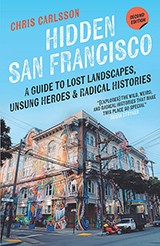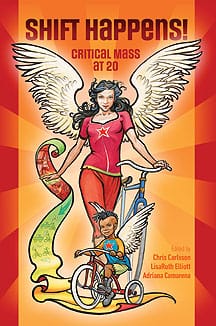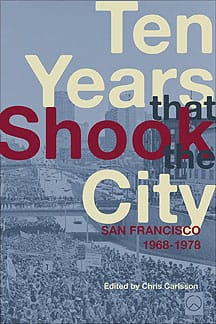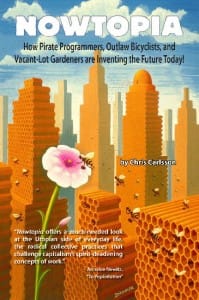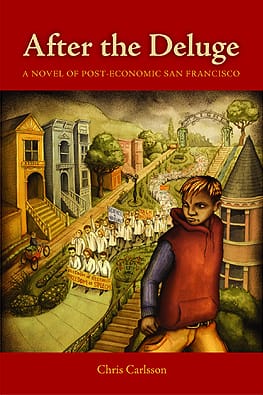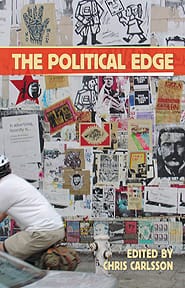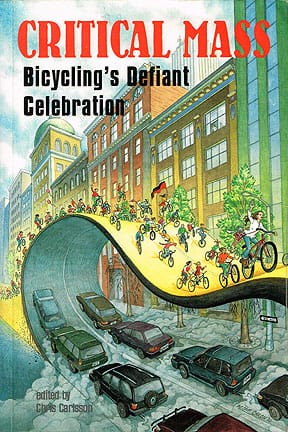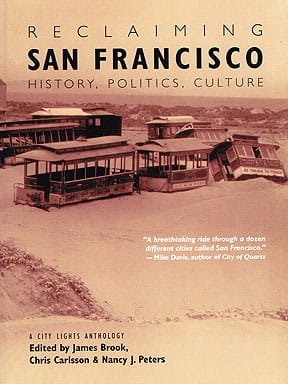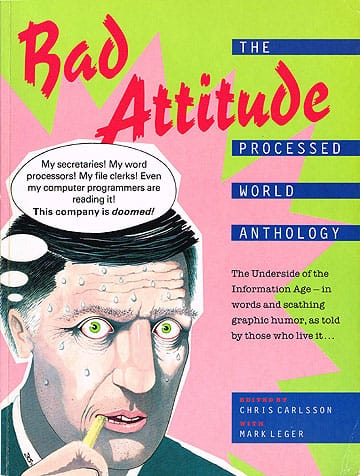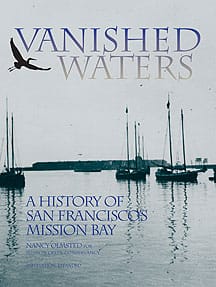
Mais amor, or “more love” was the recurrent theme running through the 3rd World Bike Forum in Curitiba, Brazil.
After almost a week of travel and visiting Porto Alegre and Sao Paulo, it was time to fulfill my primary reason for travelling to Brazil this time. I took the plane to Curitiba in Paraná state, south of Sao Paulo, and was met at the airport by Danilo, a bicycle transportation coordinator for the City, but also a major activist and participant in organizing the Forum Mundial da Bicicleta III (3rd World Bike Forum) here. He was just the first of many wonderful people I met in Curitiba, characterized by warmth, generosity, enthusiasm, and huge hearts!

Goura and Luis Patricio were stalwarts on a team of wonderful people who made the Forum a great success. Me? I just hung around pointing at things I like!
I was an invited guest to the first Forum two years ago in Porto Alegre, so it was an unexpected pleasure and honor to be invited again so soon. I had always wanted to see Curitiba, a city famous for being an early innovator in Bus Rapid Transit and garbage recycling programs a couple of decades ago. Today it is probably the calmest city I’ve been to in Brazil, fairly prosperous, and full of long pedestrian areas and a few wonderful bikeways that run many kilometers from the center to the outer edges of the city. The one I took every day runs just a half block from the home of Cassinha and Joaquim, my amazing and super generous hosts. Cassinha was also a key player on the organizing committee for the Forum, helping get a big donation from the local Industrial Association among her many talented contributions.
I have to admit I was feeling a bit jaded before the Forum began, having been to the first one two years ago, and before that to two different “Towards Car-Free Cities” conferences (Portland in 2008 and Guadalajara in 2009) and also a “Congreso Nacional de Ciclismo Urbano” conference in Guadalajara too. Similar experiences were had too in various international gatherings (albeit not about bicycling per se) in the World Social Forum in Belém, Brazil, and the Copenhagen Climate Change conference in 2009. But after four days of meeting, attending various presentations, riding in a “Bicicletada” (Critical Mass) in the rain on Valentine’s Day (actually in Brazil Valentine’s Day is June 12, same day celebrated as Mother’s Day in Mexico I think), getting a side trip in to visit Nova Primaveira (a squatted quasi-nowtopian community in the shadow of a big modern Toshiba Factory in the City of Industry section of Curitiba) and topping it off with a day-long journey to ride down the famous “Serra da Graciosa” yesterday, I have had a fantastic time here. So many wonderful people converge on these gatherings, mostly Brazilians from all over the country, but this time we also had Elly Blue from Portland, Carlos Marroquin from Bicimaquinas in Guatemala, Mona Caron (and Dustin Fosnot) from San Francisco, Carlos Cadena Gaitán from Medellin (via Maastricht, Holland), Lars Gemzøe from Copenhagen, Uwe Redecker from Kiel Germany, Olga Sarmiento from Bogotá, Galo Cardenas from Quito, Charlotte Fagan from Boston’s Bikes Not Bombs, and so on. I tend to think of this as a “Brazil Bike Forum” with international guests, akin to the annual Ciclismo Urbano conferences in Mexico (especially when you consider that the opening night’s session featured 6 guest speakers, all Brazilian, all in Portuguese without translation).

A soggy Critical Mass in Curitiba, here I am in conversation with Brazilian bike activist pioneer Renata Falzoni; Danilo and Goura in front.
The Forum got off to a controversial start the first night when a small dedicated group decided this was their chance to confront the Mayor. Curitiba Mayor Gustavo Fruet agreed to speak at the opening night ceremony, and has to be given extra credit for sitting through a rather trying and potentially humiliating treatment at the hands of the protesters. By all the accounts I heard, this mayor is an ok guy, not a major bike proponent, but helpful where the previous administration was obstructionist. So he represents to many a kind of slow progress, far from radical, but not super conservative either. The big street demonstrations of last June-July in Brazil are still hanging in the air here of course, and many people are busy trying to interpret those events and take the measure of their political meaning in the present and looking to the future. Graffiti sprayed across from the Forum promises that if the bus fares go up again, Curitiba will stop!
The original spark that triggered last June’s demonstrations by millions of Brazilians was a sudden rise in bus fares. Protests quickly ballooned to hundreds of thousands who seemed to be fed up with everything—the limits of bourgeois democracy, the corruption associated with the massive public expenditures on World Cup and Olympic preparations, the misplaced priorities for public wealth that is directed towards building more freeways instead of improved public transit, etc.
So in the Official Opening of the Forum, after various speakers finished, it was time for the Mayor. Hecklers broke out across the back of the auditorium, focused on the question of the bus fares and the threat to shut down the city. After refusing to stop yelling, they broke into organized chants while waving banners; the Mayor waited a while, organizers started gesturing towards the protesters (of course everyone knows each other outside of this) to stop already, but the hecklers would not give it up. The Mayor began to speak but could hardly be heard. Finally, after about 10-15 minutes of this, the tension was very high in the room, the protesters were about as “violent” as you could be in the situation without actually physically attacking anyone, but there was a palpable tension and sense of threat. One by one the other speakers on stage came forward to stand next to the Mayor, and within minutes many members of the audience had also filed up on to the stage to make clear they stood with him—and civility—against the small band of dogmatic protesters.

Speaker and audience alike gather in solidarity the Mayor after an extended period of heckling from transit fare activists.
After the surprise of that hijacking, there were a lot of bad feelings among the principal organizers, but it dissipated in the days that followed. Well organized, the Forum’s many workshops and gatherings took place in good spirits and were well attended. Before hundreds converged on the Forum, Mona arrived a week earlier to paint a much-loved new mural across from the “Bicicletaria Cultural” (a small basement DIY bikeshop and meeting place in the center of the city).
Meanwhile Tom Mais Amor and Rimón Guimarães, two other awesome local painters, were also running around painting gorgeous bike-related murals to help celebrate the Forum. The city was paying attention too, with lots of local press coverage, and everyone having to take notice of how many more people were suddenly riding around, often in rather large groups.
The streets here, like everywhere in Brazil, are horribly jammed with cars, edge to edge, no shoulders, no place for bicycles, bad treatment for pedestrians, etc. Like the U.S. the Brazilian economy is very car-centric, leaving it to the automobile industry to be the literal “motor” of a distorted economy still erroneously measuring well-being with the obsolete yardstick of “growth.” Brazilian cyclists for the most part are eager to embrace a deeper agenda of social transformation, which is part of why I guess they are so nice to me when I show up down here, but it is definitely why I get so much inspiration from them! In San Francisco we are so overwhelmed by the gentrification/speculation/tech bubble that transit politics and really any other concern has just shrunk to an afterthought. Here, transportation is front and center, in no small part because Brazilians spend 2-3 hours a day in traffic, maybe twice that much depending on where they live, as gridlock is amazingly common.

This is the bikeway I took to get from the northern neighborhood where I was staying to the Forum every day. Really a great system, though it should be radically expanded.
One of everyone’s favorite presentations here was by Carlos Marroquin from Guatemala’s Bicimaquinas project. I met the project, though not Carlos, in Guadalajara five years ago, and was bowled over by it then. It’s only gotten better in the ensuing years. Bicimaquinas has benefited from a container full of used bike parts from Bikes Not Bombs, and some technical and financial support from MIT technicians. But the simple genius of hooking up pedaling equipment from discarded bicycles to such electrical devices as washing machines, blenders, wheat threshers, coffee grinders, and more, is very inspiring. Thanks to the international connections the technology is spreading, too, with projects in Africa now, and of course there are already companion efforts in Mexico and other parts of Central America.
I gave two presentations. The first one was on a panel right before the Friday night Critical Mass ride, held in the University “reitoria” (the big auditorium where they had simultaneous translation available most of the time). The title I had suggested was translated into Portuguese and stuck (“Bicycling’s Defiant Celebration: An Irresistible Invitation” “O Vibrante Desafio das Bicicletas: um Convite Irresistível”). I went first and after the previous days’ presentations and conversations I decided to develop the theme that seemed to be rising to the surface, based on the often invoked slogan here “Mais Amor, Menos Motores” or “More Love, Less Cars”. I stuck to the love part, it being Valentines Day at home, and wove that together with the irresistible invitation part, emphasizing as I have many times in the past the importance of the celebratory and invitational quality of radical politics, specifically in this case Critical Mass. This seemed especially important to re-state after the previous evening’s rude and pointless exercise in self-referentiality by the bus fare protesters, a style of politics that is surely as dead as the old left vampires who still manage to occasionally colonize new minds with a harsh cult-like logic. So I talked about the early euphoria of Critical Mass, how the lessons we learned have reappeared in various forms during their emerging revolutionary wave still unfolding across the planet. I brought in George Katsiaficas’s great notion of the “eros effect,” whereby the powerful attraction we feel when we’re in the streets together is an alluring motivation to keep heading back into the streets, to dedicate our trust and hopes to masses of strangers who suddenly seem so attractive and connected. Finally I wrapped up a fairly short 10 minute speech with the suggestion that everyone should go out and offer the irresistible invitation of their love.
After me went Odinn from Sao Paulo, one of the initiators of the ride there in 2002, and he waxed poetic about the ride and its social effects on his city and drew wider conclusions too. Then he gave way to Renata Falzoni, an incredible woman who has been Brazil’s most persistent bike advocate for more than 30 years. As it happens she’s also a video journalist herself, so not only has she saved a lot of old clippings and video clips from decades past, she has also produced a lot of media since the early 1990s. She talks a mile a minute and claims that at 60 she’s ready to retire, but no one believes it. Her presentation was an epic tour-de-force through the many episodes of bike activism through the years. And much to her credit, around 2007 she came to realize that her emphasis on top-down policy makers may have been misguided and she came to embrace the horizontalism of Critical Mass and the burgeoning scene of grassroots activism around Brazil. They are lucky to have someone like her, who embodies the memory of the movement, has the archives that no one else thought to keep, and continues to inspire to this day.
After our panel we rode for a couple of hours through a very soggy Curitiba under steady rain, ending at a concert near the center hill where I’d been the day before visiting Rimón Guimarães’s mural in progress. The first band was great, a Balkan-punkish ensemble, but when they were done the reggae that followed convinced me it was time for another visit to the pizza parlor where the crusts are so thin they cut them with scissors! Yum! Best pizza I ever had—really!
Saturday morning I was on a panel billed as a discussion of Bikes and Economy. I gave a 20-minute show about the history of building the bridges in the bay, and the freeway revolt, culminating in our idiotic situation with a Bay Bridge “bike pier” that won’t connect to anything for two years, and then only to the middle of the Bay while Caltrans spends years and hundreds of millions trying to build new redundant decks on the west span. The easy answer of course is to restripe the top deck of the west span back to 6 lanes, as it was as late as 1963 during the culminating battles of the Freeway Revolt, and dedicate the re-created 6th lane to cyclists and pedestrians. Cost? Less than $20,000 I’m sure. And it could be achieved in just a few weeks if there was any commitment by Caltrans to actually meeting the needs of anyone other than car drivers and local engineering firms. Makes my blood boil every time I think about it! Daniel Guth from Sao Paulo gave a very good statistic-heavy look at the economics of death and mayhem on the roads (I suggested we should point out that politicians who vote for road subsidies are actually voting for a death lottery, given than 60,000 people die every year on Brazilian highways, and a little over half that in the U.S.). Rafael Milani Medeiros pointed out that Amsterdam isn’t such a bike-friendly place as it is reputed to be, compared to its own history—85% of daily trips were made by bike in 1950, now only a bit over 40%. And Elly Blue did a fine job of laying out an argument on how bikes stimulate economic activity compared to cars which tend to depress it (discussion of the inadequacy of a growth model, a capitalist system, or anything based on wage-labor and consumerism was simply absent from all our Talks).
As usual I could go on and on, but the catalog is online, there are many photos appearing on the facebook page and via instagram hashtag #FMBIII. I am sure there will be more videos shortly too. The next World Bike Forum was voted on by those of us in attendance at the final session, and by a 64-56 vote, Medellin, Colombia will be the host in 2015, details and dates to be determined. I hope I can go!
Here are some of my favorite collections: https://www.facebook.com/media/set/?set=a.10201417857828973.1073741831.1250617709&type=1
https://www.facebook.com/bruno.roloff.7/media_set?set=a.661080950626086.1073741881.100001725612620&type=1

















